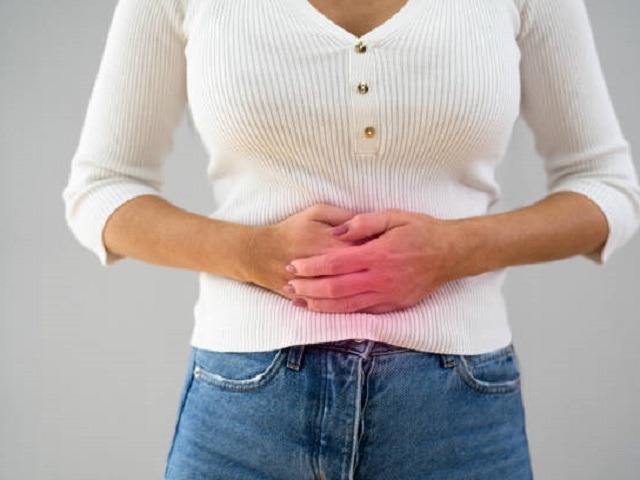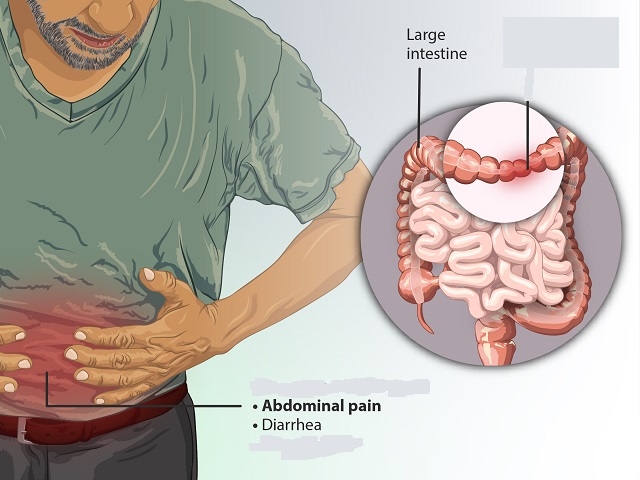5 Signs You May Have Diverticulitis --- Symptoms, Causes, Effects, Treatment and Prevention
Diverticulitis is a condition characterized by inflammation or infection of small pouches called diverticula that form in the lining of the colon. These pouches typically develop due to weak spots in the colon wall.
Symptoms of Diverticulitis
The common symptoms of diverticulitis include:
- Abdominal pain: Usually localized on the left side of the lower abdomen, which may worsen with movement or pressure.
- Fever and chills: Infection in the diverticula can cause fever and chills.
- Changes in bowel habits: Such as constipation or diarrhea.
- Nausea and vomiting: Some individuals may experience these symptoms.
- Bloating and gas: The abdomen may feel bloated, and there may be increased gas production.
Diagnosis of Diverticulitis
To diagnose diverticulitis, healthcare providers may:
- Physical examination: Assessing the abdomen for tenderness, swelling, or signs of infection.
- Imaging tests: Such as a computed tomography (CT) scan or ultrasound to visualize the inflamed diverticula and evaluate the extent of the condition.
- Blood tests: Checking for signs of infection or inflammation.
Causes of Diverticulitis
The exact cause of diverticulitis is not fully understood, but it is believed to be associated with several factors, including:
- Diverticula formation: The formation of diverticula occurs when weak areas of the colon wall protrude outward.
- Obstruction: When the diverticula become blocked with stool or waste, it can lead to inflammation and infection.
- Microperforations: Small tears or openings in the diverticula can allow bacteria from the colon to enter and cause infection.
Effects of Diverticulitis
If left untreated or poorly managed, diverticulitis can lead to complications such as:
- Abscess: Infection can result in the formation of pus-filled pockets around the colon.
- Perforation: Severe inflammation can cause a rupture or perforation in the diverticula, leading to the leakage of intestinal contents into the abdominal cavity.
- Fistula formation: An abnormal connection between the colon and other organs or structures, such as the bladder or skin.
- Bowel obstruction: Scarring from recurrent or severe diverticulitis episodes may cause a blockage in the colon, preventing the normal passage of stool.
Treatment of Diverticulitis
The treatment of diverticulitis typically involves:
- Antibiotics: To treat the infection associated with diverticulitis, antibiotics are often prescribed.
- Pain management: Nonsteroidal anti-inflammatory drugs (NSAIDs) or analgesics may be used to alleviate pain and discomfort.
- Dietary modifications: A clear liquid or low-fiber diet may be recommended initially, followed by a gradual transition to a high-fiber diet to prevent future flare-ups.
- Rest and hydration: Adequate rest and increased fluid intake help support the healing process.
- Hospitalization: Severe cases of diverticulitis or complications may require hospitalization and intravenous antibiotics.
Prevention of Diverticulitis
To prevent diverticulitis or reduce the risk of recurrence:
- High-fiber diet: Consuming a diet rich in fruits, vegetables, whole grains, and legumes can promote regular bowel movements and prevent diverticula formation.
- Hydration: Drinking enough fluids, primarily water, helps maintain bowel regularity.
- Regular exercise: Engaging in regular physical activity promotes healthy digestion and reduces the risk of constipation.
- Avoiding straining during bowel movements: Straining can increase pressure in the colon and contribute to diverticula formation.
- Managing stress: Stress management techniques, such as exercise, relaxation, and therapy, can help prevent or manage diverticulitis.
It is important to consult a healthcare professional for an accurate diagnosis, personalized treatment, and guidance on managing diverticulitis.
References:
Mayo Clinic. (2021). Diverticulitis. Retrieved from https://www.mayoclinic.org/diseases-conditions/diverticulitis/symptoms-causes/syc-20371758
National Institute of Diabetes and Digestive and Kidney Diseases. (2021). Diverticulosis and Diverticulitis. Retrieved from https://www.niddk.nih.gov/health-information/digestive-diseases/diverticulosis-diverticulitis














